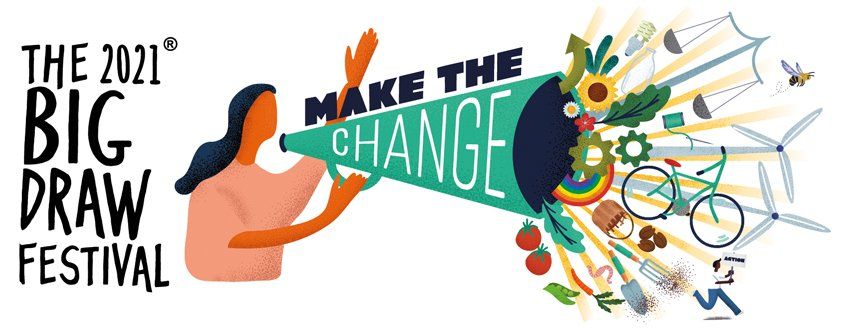Drawing is a vital tool for education, more so now than ever
Running since 2000, The Big Draw Festival is the world’s biggest drawing festival and an annual celebration of the power of drawing, with hundreds of schools from all over the world taking part. For many students, drawing is a means of understanding the world, how it looks, and how it works. There is ever-increasing evidence to suggest that drawing is the single most powerful tool for learning and retaining new ideas.
Part of the core activity at The Big Draw is to actively argue the case for creativity in schools and in the workplace. With our ongoing work in visual literacy and creativity, The Big Draw is only too aware of the devastating impact the EBacc (UK) has had on the uptake on creative subjects at schools. Within the UK, we support the Bacc for The Future campaign and continue to work with our ambassadors and patrons to lobby in parliament to make the case for creativity.
Drawing is a transferable skill which can be integrated into the entire curriculum, and we at The Big Draw believe everyone can draw and everyone should have access to the benefits of drawing. It is a vital tool in many professions: from mathematicians, to surgeons, architects to engineers, therapists, political commentators to graphic designers. The humble pencil has built many a pioneer within every profession you can imagine.
And so, we can reveal that our festival theme for this year is a creative call for action, building on last year’s theme which focused on the environmental crisis. We expand this theme for 2021 to one of activism and sustainable living, and invite you all to act as champions to help ‘Make the Change’.
From Engage issue 22.





